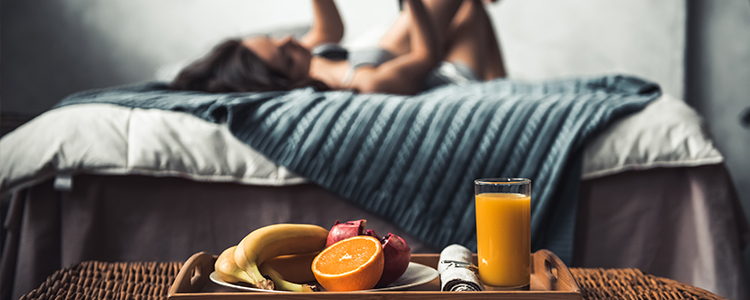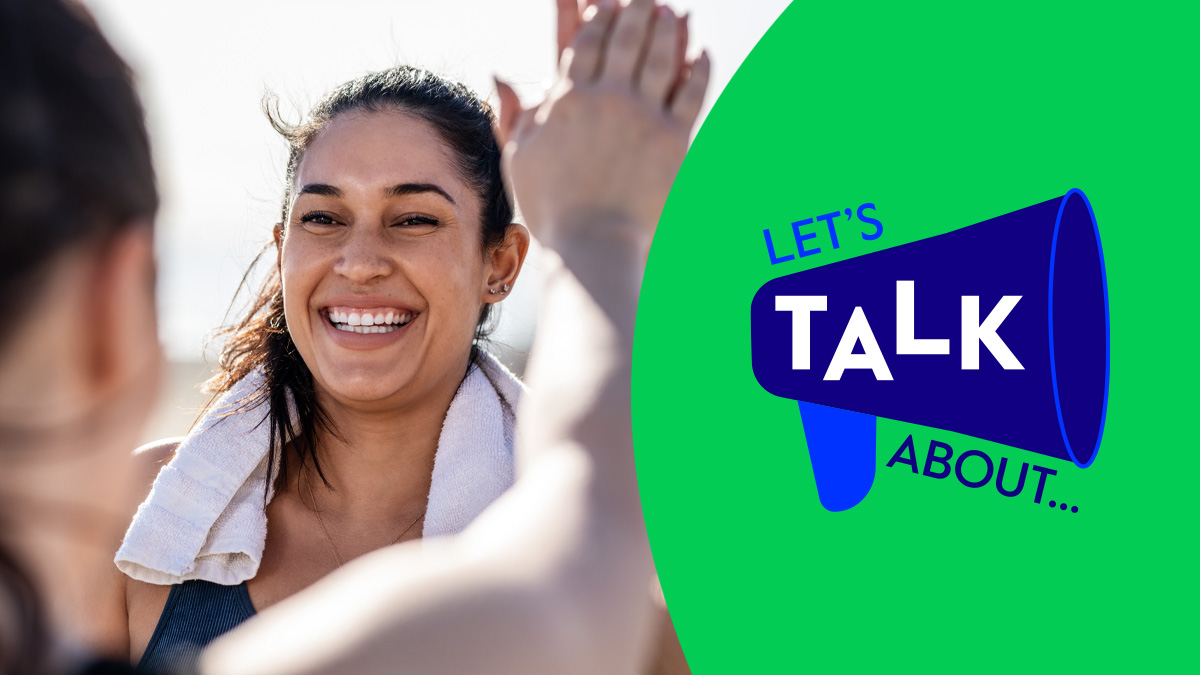In a previous article, we talked about the phenomenon of ‘coronasomnia’ and how our lifestyles in the new normal have contributed to it. This rise in insomnia and other sleep-related concerns coincides with the findings of our 2021 360 Wellbeing Survey, in which only 23% of respondents in Singapore reported that they had sufficient sleep, as compared to the global average of 30%1. While factors such as stress, mental health, exercise and work-life balance certainly have a part to play in aiding better quality sleep, there is another factor that frequently escapes our notice: our diet. A growing body of research suggests that the food we eat and how well we sleep are fundamentally connected. Let us clue you in on why.

The foods that promote deeper sleep
There are a few food-related tips that frequently come to mind when it comes to sleep, such as not eating or drinking caffeine too close to our bedtime. But what about the food we eat? Do they also affect our quality of sleep? You may be surprised to find that, as a matter of fact, they do.
Much of what we know about the link between sleep and diet stems from extensive studies which have found that those who suffer from consistently bad sleep tend to also have poorer diets. For instance, research has indicated that eating a diet that is high in sugar, saturated fat, and processed, simple carbohydrates can be disruptive to our sleep. This is because such foods - white bread, pasta, pastries, and so on - cause our blood sugar levels to fluctuate more than usual, which in turn wakes us up more frequently throughout the night2.
On the other hand, consuming more diverse food groups that are rich in fibre and unsaturated fat, like veggies, nuts, and fish, can have the opposite effect of promoting better quality sleep. Studies have linked these foods to longer durations of slow-wave sleep, which is also known as non-rapid eye movement (NREM) sleep. This stage of sleep is considered to be vital for memory consolidation and efficient day-to-day functions as it provides the most restorative sleep and allows us to feel more rested3.
While the main takeaway here is to simply eat well, you can also consider spicing it up by opting for Mediterranean meals or snacks from time to time. As a general rule of thumb, Mediterranean diets are considered to promote quality sleep with ideal sleep durations and fewer insomnia symptoms because of the key ingredients that feature prominently in their meals. These ingredients, such as vegetables, fruits, nuts, legumes, whole grains, seafood, yoghurt, herbs, spices, and olive oil, tend to be rich in melatonin, serotonin, and vitamin D - all of which are crucial for quality sleep.

How sleep affects the way we eat
The link between food and sleep does not just stop here, as the relationship between these two factors is effectively a two-way street. To some, eating poorly might just mean having to deal with bad quality sleep for one night, but the truth is that the effects of poor sleep also spill over to the next day in the form of lower energy levels and even poorer food choices. Researchers have found that people who lose sleep are likely
to experience physiological changes that cause them to seek out unhealthier foods and eat with less self-control. Such changes can be attributed to the changing hormone levels that take place within our bodies when we are sleep deprived. Specifically, there are higher levels of ghrelin while leptin decreases. The former causes an increase in our appetite, and a lower level of leptin means that we are less likely to feel full4.
In other research studies, participants who only sleep approximately 4 or 5 hours a night also tend to end up snacking more frequently and consuming more calories throughout the day, as compared to their peers who sleep more5. In addition to greater hunger pangs, it has also been found that individuals with poorer sleep feel a greater preference for sweet foods6. The worrying thing about these hormonal changes is that they can often go unnoticed, much less be linked to our lack of sleep. This vicious cycle of poor diets and sleep therefore makes it that much harder to tackle. If left unmanaged over an extended period of time, they can even go on to affect our Whole Person Health. Numerous studies, for instance, have shown that both adults and children are more likely to gain weight and be overweight the less they sleep at night, resulting in obesity that is usually associated with greater risks of heart and chronic diseases7.

Over to you
Eating and sleeping are two things that we do without fail every day. While their significance may be diminished by the mundanity of the actions, the interconnectedness between the two makes them out to be some of the most important decisions that we can make each day to improve our health and wellbeing. The good news is that doing well with one can also improve the other. By taking the time and effort to eat or sleep better, we can create a virtuous cycle that rewards beneficial habits and reinforces a more effortlessly healthy lifestyle today.
Sources:
1. Cigna. (2021). 2021 Cigna 360 WellBeing Survey: On the Road to Recovery.
2. St-Onge, M., Roberts, A., Shechter, A., & Choudhury, A. (2016). Fiber and Saturated Fat Are Associated with Sleep Arousals and Slow Wave Sleep.
3. Dijk, D. (2009). Regulation and Functional Correlates of Slow Wave Sleep.
4. Frates, E. (2021). Could what we eat improve our sleep?. Harvard Health.
5. Nedeltcheva, A., Kilkus, J., Imperial, J., Kasza, K., Schoeller, D., & Penev, P. (2008). Sleep curtailment is accompanied by increased intake of calories from snacks.
6. Tajiri, E., Yoshimura, E., Hatamoto, Y., Shiratsuchi, H., Tanaka, S., & Shimoda, S. (2020). Acute Sleep Curtailment Increases Sweet Taste Preference, Appetite and Food Intake in Healthy Young Adults: A Randomized Crossover Trial.
7. Cappuccio, F., Taggart, F., Kandala, N., Currie, A., Peile, E., Stranges, S., & Miller, M. (2008). Meta-Analysis of Short Sleep Duration and Obesity in Children and Adults.


